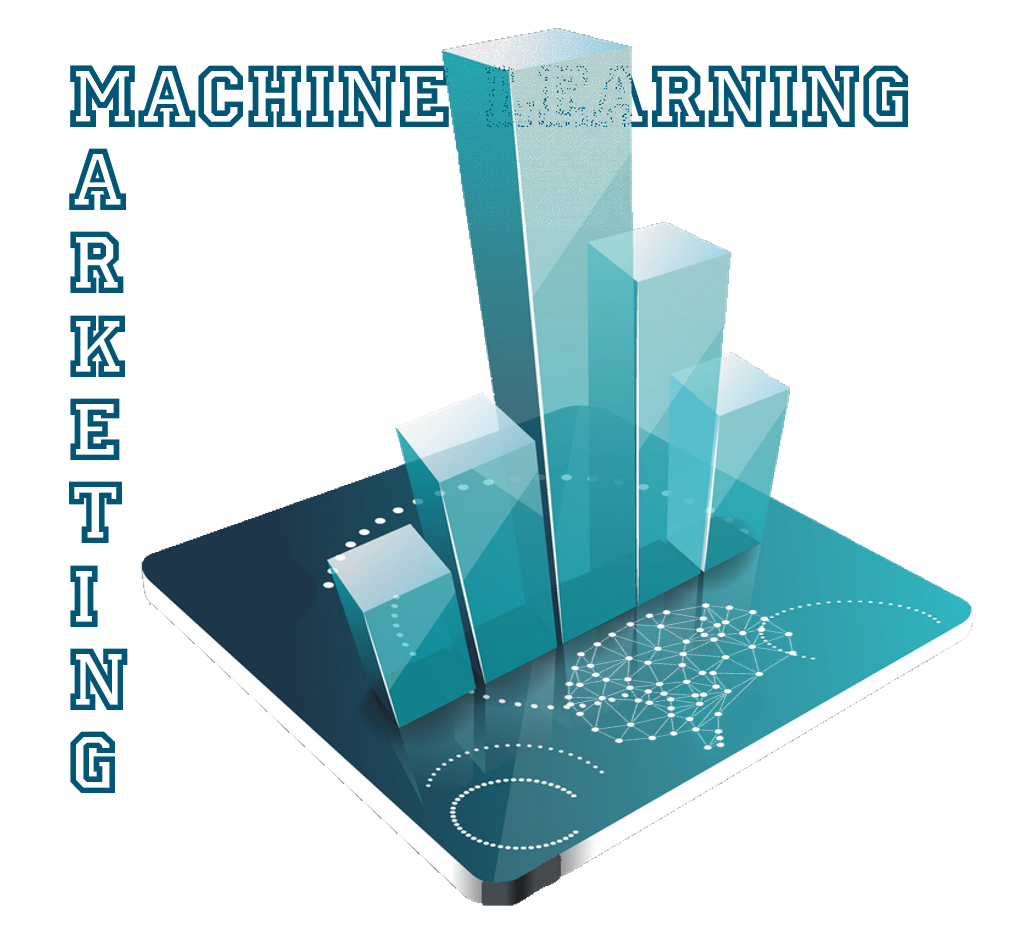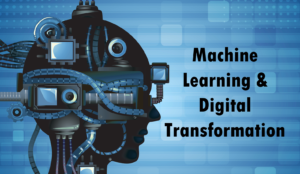The holiday season is also the advertising season. Consumers confront mailboxes full of catalogs and are exposed to many more ads via other media channels. Journalist Paul Hiebert (@hiebertpaul) reports that digital media has become a marketing Pac-Man racing to gobble up more and more ad dollars. He writes, “Recent developments are making the internet more attractive for advertisers looking to turn consumers into customers.” According to Hiebert, the two biggest spenders in the digital advertising sector are retailers and consumer packaged goods (CPG) manufacturers. He reports, “The research firm [eMarketer] expects the CPG category to contribute 16% of this year’s total U.S. digital ad spend — second only to retail (24.9%).” One of the recent developments in digital marketing to which Hiebert refers is machine learning (ML). Artsiom Balabanau (@balabanau), CIO at the software development firm Andersen, explains, “If you want to rule marketing today, you have to not only possess information but also track valuable data for your business. Knowing that a company has 100,000 faceless clients is not enough; it is vital to understand what those people are interested in and what can be offered to them. An effective way to improve marketing performance and increase sales is to use machine-learning technology to help improve and automate your marketing.”[2]
The Benefits of Machine Learning in Marketing
Hiebert notes, “Generally speaking, dynamic online advertising can do things static offline ads can’t.” Among the most important of those “things” is the ability to “tailor ads for specific consumer groups.” Targeted marketing is possible because cognitive platforms using machine learning can provide valuable and actionable insights to marketers. On top of that, targeted marketing isn’t the only benefit machine learning can provide to organizations. Journalist Lee Lifeng explains, “A major benefit of artificial intelligence is automation — training a computer to do the computationally expensive and repetitive tasks for you — and every business function from budgeting to marketing stands to benefit.”[3] As a result of the many benefits organizations can accrue using machine learning, Balabanau notes, “Martech solutions and technologies will become a priority in the coming years.” He identifies “seven areas where machine-learning algorithms are useful” for marketers. They are:
1. Marketing Analytics. Peter Roesler (@KickAss_SEO), President of Small Business SEO, notes, “Big data, machine learning, and A.I. are all considered somewhat young concepts. Because of this, humans are still highly involved in many processes when creating campaigns. Data is only [important] if people know what they can do [with it] and have clear objectives in place. Also, businesses need to remember how important personalization is for modern consumers while ensuring ongoing transparency.”[4] He adds, “If you want to succeed, you need to track and monitor the development process. Doing this will help ensure your marketing efforts remain effective. A huge benefit of A.I. for marketing is the chance to automate processes that take too much time when done manually. With A.I.-powered solutions, you can improve the efficiency of several processes.” Balabanau adds, “Thanks to ML-based analytics, specialists can assess the performance of marketing campaigns, improve them, and make predictions for the future far more quickly.”
2. Content Marketing. Lifeng notes, “A big part of digital marketing is generating strong online content. And content creation isn’t just about generating materials, it’s about creating a content experience for your followers. This means telling a story and providing interactive, personalized information that users can relate to.” Machine learning can help generate content. Balabanau explains, “Machine learning allows marketers to forget about repetitive, routine tasks such as selecting and analyzing keywords, searching for suitable topics, publishing posts on social networks, sending emails, etc. AI can collect popular topics and search queries and predict which ones will be relevant to your audience in the near future.”
3. Advertising. “Many people become annoyed by irrelevant and poorly designed ads,” Balabanau writes. “AI-powered tools create engaging offers for each individual user so that ads reach the right people at the right time and in the right place.” Roesler insists machine learning-empowered targeted advertising can also improve your pay-per-click efforts in two ways. “[First,] when you use A.I. to control your ads, you can adjust your campaigns by making small changes to the code. In the long run, this makes your PPC efforts more effective. … [Second,] it’s possible to use A.I.-powered analytics and call tracking software to understand the connection between leads gathered by your offline efforts and set campaigns, and in some cases, even your keywords. When you analyze data based on offline conversions, it’s possible to improve your retargeting efforts.”
4. Search Engine Optimization (SEO). Balabanau notes, “Machine learning can help find relevant queries for websites and personalize text content. … ML tools enable you to predict which SEO improvements for your website are realistic, and help you implement them.” Often location is an important factor in ad spend. Robert Warner, CEO of InvisiblePPC, notes that his company has “built a tool that dramatically increases the performance of Google search ads by using AI to identify locations in search terms.”[5]
5. Account-Based Marketing. According to Balabanau, “Using AI, marketers can identify accounts that convert the most and predict peak sales periods.” He reports, “AI-assisted account-based marketing (ABM) increases corporate revenue by up to 40% a year, according to Salesforce, whereas traditional ABM approaches increase it by only 10%.”
6. Dynamic Websites. Balabanau explains, “Dynamic websites are generated in real-time. When opening dynamic websites, users see pages generated for their unique needs. … Through ML/AI, everything on a webpage can be adapted: headers, colors of elements and page backgrounds, recommended products, sorting by price, etc.”
7. Branding. According to Balabanau, machine learning and AI can provide a brand with “personalized user experience, better SEO and marketing strategies, targeted advertising, accurate sales and risk predictions, [and] 24/7 customer support.” He adds, “All that helps to build a brand, and it’s all driven by automation and machine-learning.”
A benefit Balabanau didn’t mention was optimizing smart bidding strategies. Terry Tateossian, a Founding Partner at Socialfix Media, insists, “The most effective usage of ML in ad tools is for optimizing smart bidding strategies where the goal is to maximize target cost per action, return on ad spend, conversions and cost per click.”[6] Roesler adds, “When you use A.I. to control your ads, you can adjust your campaigns by making small changes to the code. In the long run, this makes your PPC efforts more effective. One example is using A.I. to adjust your PPC bids autonomously. By doing this, you won’t bid too low for an ad that will help you generate quality leads. It will also help you improve your overall return on investment by eliminating overbidding.”
Concluding Thoughts
The staff at CIO Applications writes, “The insights ML can offer are fantastic.”[7] Using what they call “cognitive intelligence,” they assert, “Machine learning systems can be used to generate inputs to help advertisers link to their primary target audience more precisely.” The Forbes Agency Council adds, “By using ML to train the AI on what works and what doesn’t, [an] agency can create systems specifically designed to provide more accurate predictive feedback. The result is a more effective and optimized advertising and marketing campaign guided by real numbers and not guesswork.”[8] Roesler insists marketers are still learning how beneficial machine learning can be. He concludes, “If you want to achieve the highest level of success with your paid ads, be sure to utilize A.I. in your efforts. Doing so will pay off and help you get more bang for your paid advertisement dollar. Don’t underestimate how beneficial A.I. and machine learning can be. Also, as it continues to evolve and grow, even more opportunities will arise. Keep this in mind to create campaigns that outrank the competition.”
Footnotes
[1] Paul Hiebert, “Pac-Man, Digital Keeps Gobbling Up More CPG Ad Dollars,” Adweek, 1 November 2021.
[2] Artsiom Balabanau, “Marketing Automation: Seven Machine-Learning Use Cases,” MarketingProfs, 6 October 2021.
[3] Lee Lifeng, “4 Smarter AI Strategies To Boost Marketing,” The Marketing Insider, 10 September 2021.
[4] Peter Roesler, “How Artificial Intelligence Can Improve Your Pay-Per-Click Ad Efforts,” Inc., 23 September 2021.
[5] Forbes Agency Council, “11 Of The Smartest Ways To Leverage Machine Learning Ad Tools,” Forbes, 30 December 2020.
[6] Ibid.
[7] Staff, “How Machine Learning is Changing the Role of Advertising,” CIO Applications, 31 May 2021.
[8] Forbes Agency Council, op cit.




